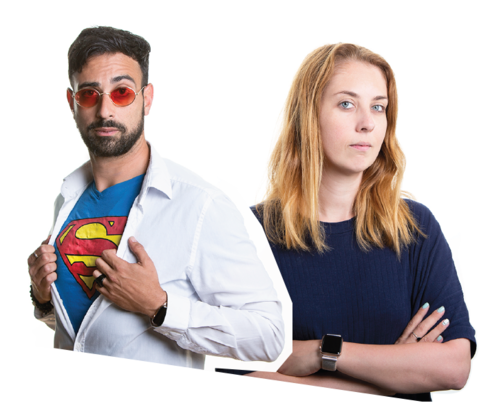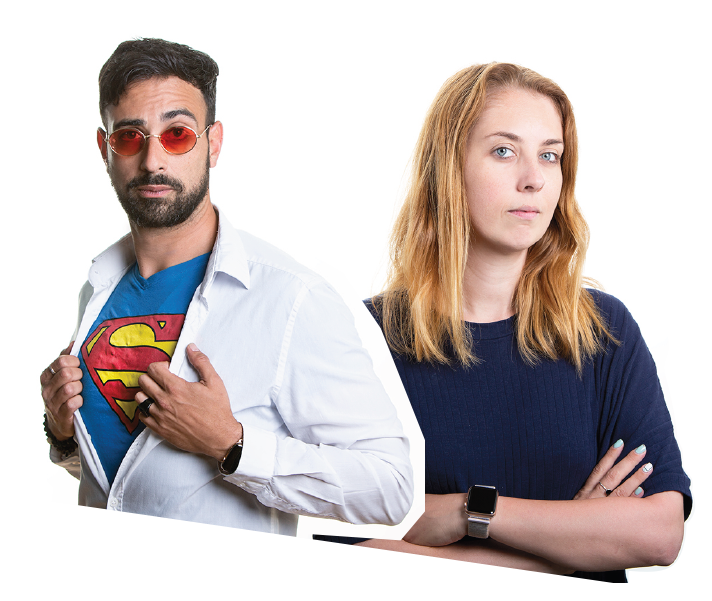
Opinion
How to give a podcast interview that will keep listeners engaged?
There’s a common thread between investor meetings and podcast interviews: ideally in both you should tell your story in a way that is authentic, attention grabbing and inspiring. What’s the best way to do that in a podcast?
At the end of the day, every entrepreneur should be able to do sales and marketing. The ability to execute them well greatly determines the chances of success in attracting customers, investors, and the best employees.
Honing marketing and sales skills is an ongoing process. Entrepreneurs must be able to push themselves to the limit (skills wise, not emotionally!), break boundaries, and step outside of their comfort zone. For many, an interview is outside the comfort zone.
Success is practically impossible without having a vocal presence and, on occasions, speaking in front of the camera during a videocast as part of the company's branding.
Podcasts have become one of the most popular media channels and their exposure rate is constantly rising. Podcasts are part of the daily conversation in high tech “water coolers”. Whether it’s culture, history, education, or entrepreneurship, personal development, and technology, podcasts are listened to by a significant percentage of employees at every startup company. And in general Israelis are embracing podcasts at very high rates (especially the younger generation).
Your company's customers, prospects and other players in the business are also listening. Interviews can help you break the ice and create a warm introduction to customers and investors. Through interviews, that initial meeting becomes much more intimate, increasing the chances of positive results.
How to prepare for a podcast interview in a way that won't turn the slightly intimidating experience into a failure?
Congrats, you’ve secured an interview (how to do that is a topic for another article), now the real work begins. There are distinct similarities between a podcast interview and a conversation with potential investors.
Build your personal story in advance by paying attention to storytelling. Do preliminary research - determine the podcast's audience, ask the interviewer(s) what they consider a successful interview, and listen to episodes the producers of that podcast consider to be excellent. Generally, it’s recommended to get to know the interviewers, their areas of interest, and where they wish to dig deeper. That way you’ll be able to tailor the relevant aspects of your story, and arrive with context that will resonate.
It’s important to keep in mind that there is no single formula for conducting an interview. But one thing is absolute - authenticity should guide the conversations on this very fascinating platform. You’ll be able to connect in a deeper way with your audience of employees and customers if you sound authentic and genuine, rather than pre-programmed. So prepare well for the interview, but also remember that it should be natural and interesting. You can discuss challenges, difficulties, or situations where you have had to close a company or fire employees and still come across very impressive.
The most successful entrepreneurs are extremely well-prepared for interviews. It will surprise you to learn that even the most experienced entrepreneurs prepare thoroughly for interviews. It’s an art to convey messages in an engaging and accurate manner. Moreover, it’s a challenge to simplify complex solutions and speak at eye level in order to keep the attention of both technical and non-technical audiences. An interview on a podcast usually lasts half an hour to an hour. During this time, a high level of concentration is required from both the interviewee and the interviewer. And they both need to be in sync, committed to giving the best presentation.
It is critical to be aware of the medium. When entrepreneurs are interviewed for a podcast as opposed to a written journalistic interview, there is a constraint on the ability to aggressively edit and change the order of questions. Changing a podcast's sequence is more challenging, since the order of recorded topics can be influenced by previous topics.
It’s important to keep in mind that podcast editors prefer continuous speech. This will allow them to concentrate on editing additional material, such as commentary clips, inspiring background music and effects, which will result in a rich listening experience.
Help the interviewers maintain retention. As soon as the episode is played by a listener, the challenge is to keep them on board until the end. In order to captivate and keep listeners for as long as possible, the content and quality of the interview are very critical. It’s this that will determine, among other things, how many will wish to listen to future episodes of the podcast. As an interviewee, it’s in your best interest that listeners will stick around. Try to think about what you’d find interesting as a listener.
Deliver real value to your listeners and don’t focus on marketing your company. You'll be appreciated by providing consistent value to the listeners and not by telling listeners how great your product is. Discuss professional challenges that companies encounter on a daily basis, and offer solutions for them. The listeners will appreciate you more and want to keep listening to what you have to say.
Instead of talking about technology and how amazing it is, provide examples of how the technology has been used to solve problems. More stories about people, real examples, and examples of how your product has impacted different groups of individuals or companies, will help the audience to identify and connect with your project.
View a podcast interview as an experience rather than a chore. The pressure is sometimes there and the stress can get overwhelming, especially if you’re not used to being interviewed. Remember that having dealt with investors and sometimes customers of the highest caliber, you’re no stranger to pressure. Leverage your experience and go have fun.
Noa Eshed is an entrepreneur who owns a global startup marketing agency. Ronen Menipaz is an investor and serial entrepreneur. They both produce and host the podcast Real Life Superpowers.














